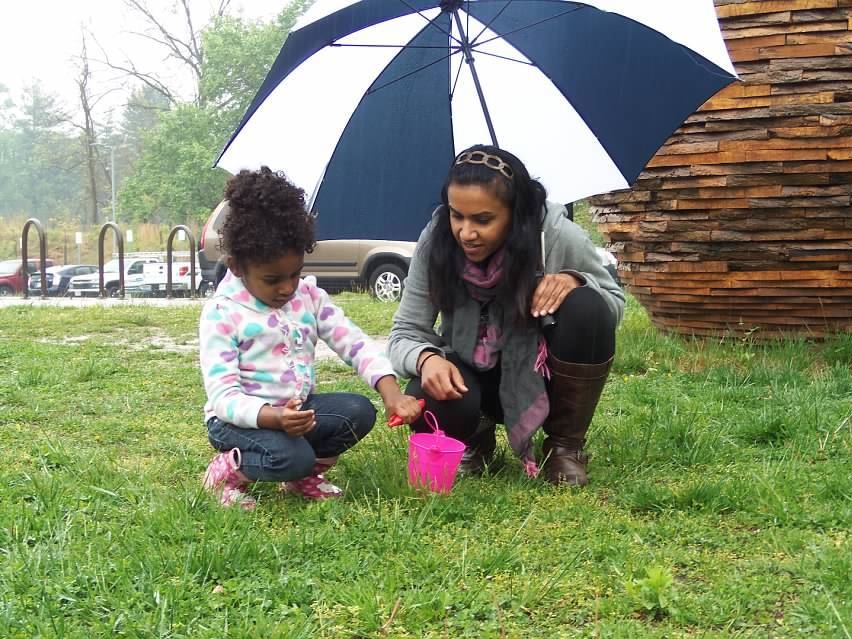We all want more than anything to help our kids learn about the world. As their most important teachers, it’s our job. But, we also know that better outcomes result when kids drive their own learning. So, how can we fulfill our role as teacher and let them drive?
If you are like me, you feel this conundrum most acutely when you play with kids. If play is the mechanism through which children learn, how can we facilitate without directing? The way we use language is a key part of this process. Before I became a parent, I learned a lot about how to talk with kids about their learning—how to dialog with kids about their thinking, use inquiry to help them spark new ideas, and use “sportscasting” and narration to value their actions and interests without giving direction or judgment.
All of that said, I still get hung up on an even simpler question—Should I engage them in conversation at all? When we ask a child who is deeply engaged in play to talk with us, we are asking a lot. The younger the child, the greater the cognitive load required to listen, process and generate a response. The deeper the child’s engagement, the more potentially distracting our outreach can be.

To follow is some advice that has helped me become much more judicious about how and, perhaps more importantly, whether or not to use language to support a child at play:
- Make your presence known without saying a word. Given how distracting conversation can be, try first to simply enter the child’s play space. Crouch down nearby and play yourself a bit. Your presence will be felt. But, if you refrain from directly engaging, the child still has the choice about when and how to engage with you. My favorite yoga teacher of all time used to come and just stand near me in class. I always knew she was there, and my warrior 2 got even better just for her presence. But, she never interrupted my experience. Be that teacher!
- Look for signs from the child. If you feel the impulse to talk with a playing child, try first to look for signs that the child is open to conversation. Does she look up and make eye contact? Does he wave you over to show you something? Does she call your name or otherwise engage you in conversation? If so, go for it. If not, consider another way to support.
- Pause before you speak. Even if you decide that you want to chat, make yourself wait several seconds first, and just observe. You may realize that you needn’t talk just yet, or you may learn a bit more about what a child is doing so the words you choose are even more meaningful.
An hour of play reveals more than a year of conversation. — H. Addington Bruce “Proverbs for Parents”
“Do less, observe more, enjoy most.” — Magda Gerber
- Mirror a child’s play. Start to play yourself in a way that mimics the technique a child is using. This is a powerful and way to say, “I notice and value what you are doing,” without using any language at all.
- Consider saving the conversation for later. Make mental notes of the things you notice your child doing. On the walk home or after the play has shifted and your child has re-engaged with you, you can share things that you noticed and start a rich conversation with them. By waiting, though, you’ll let them go even deeper into play while still getting the value of conversation after the fact.
